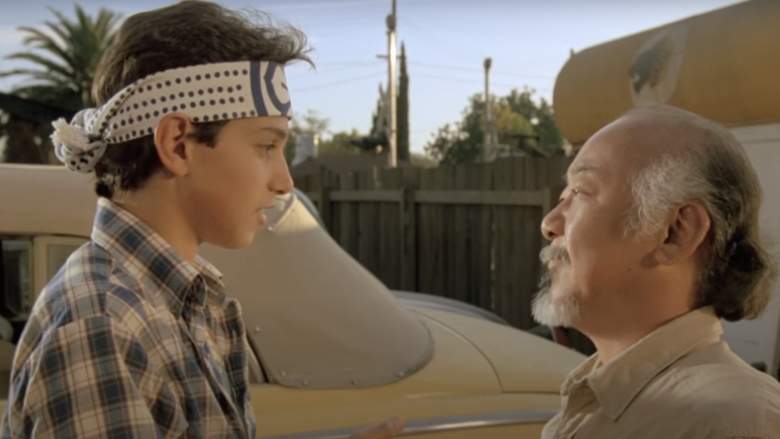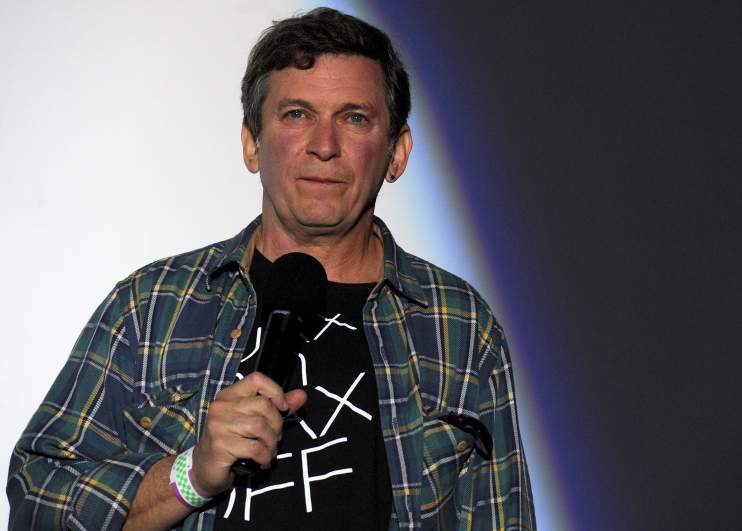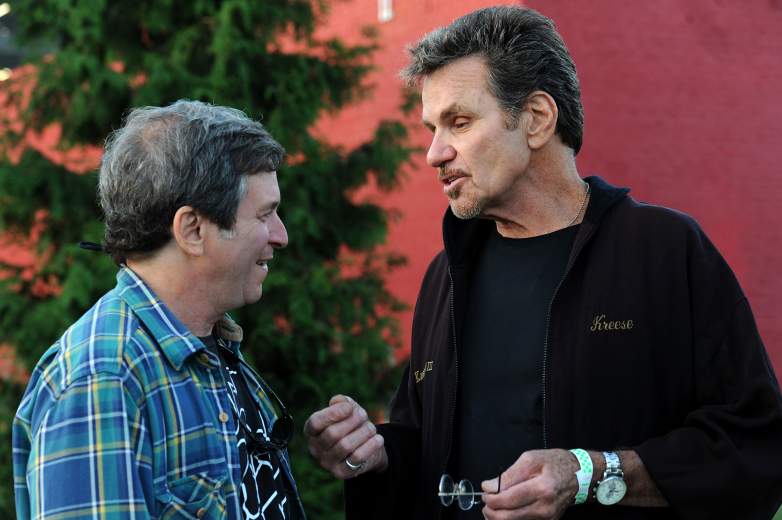
YouTube Daniel LaRusso (Ralph Macchio) and Mr. Miyagi (Pat Morita) in 'The Karate Kid' (1984).
The Karate Kid tells the tale of a young man named Daniel LaRusso determined to learn karate through the patient instruction of his wise old teacher, Mr. Miyagi, in order to defend himself from bullies and bad guys. It was such a smashing success back when it first came out that it ended up becoming one of the highest-grossing movies of 1984, and spawned two sequels, an award-nominated TV series, as well as “The Next Karate Kid,” a 1994 revamp film staring Hilary Swank and Pat Moriega.
However, many might not know the inspiration that led screenwriter Robert Mark Kamen to write the original film. For those who are fans of the television or film series, the true story behind the movie which started it all might be worth knowing. Here’s what you need to know.
Much Of The Screenplay Was Based On Kamen’s Own Life

GettyScreenwriter Robert Mark Kamen attends a ‘Karate Kid’ screening in 2012.
Although many “Karate Kid” fans are familiar with the legendary fights that took place in the movies – mostly between Daniel and bully Johnny Lawrence – few may know that it was a similar scuffle involving Kamen that served as the main inspiration for the film’s storyline. According to Sports Illustrated, “the screenwriter took up martial arts after getting jumped by a gang of bullies at the 1964 World’s Fair in New York.” In 1964, Kamen was 17, around the age that Daniel LaRusso was in the original film.
After deciding to take up karate to defend himself, Kamen took instruction from “a truculent Marine captain who preached raw violence, which helped on the revenge front but which left Kamen desiring a deeper spiritual connection with the craft,” a description that rings awfully familiar with sensei John Kreese (Martin Kove), a character crafted by Kamen to be the film’s antagonist.
As Sports Illustrated explained, Kamen then branched out to the Okinawan art of “Gōjū-ryū” – meant to “turn aggression on the aggressor with smooth blocks and sharp counterstrikes” – under the instruction of an Okinawan instructor who spoke little English but was a master of the art form.
According to SFGate, this instructor – a clear basis for the iconic Mr. Miyagi – was named Meitoku Yagi, and was a student of Miyagi Chogun, the founder of Gōjū-ryū.
It was then producer Jerry Weintraub who approached Kamen to write a screenplay based on something Weintraub had seen on the local news, according to LA Weekly. The article states that, “The story was about a boy from the Valley, who, like a lot of kids who get picked on or bullied, just didn’t know how to respond or retaliate.”
Kamen, who, according to LA Weekly, had been studying karate for 17 years, had already co-written “Taps,” a 1981 Golden Globe-nominated drama starring Sean Penn and Tom Cruise, and was fairly well-established in the film industry. It was then that Columbia pictures hired him to write a screenplay based on what Weintraub had seen. After that, the “Karate Kid” script was born.
‘The Karate Kid’ Had A Lasting Influence On How We See Karate

GettyRobert Mark Kamen (L) and ‘Karate Kid’ and ‘Cobra Kai’ star Martin Kove in 2012.
The influence of Kamen’s script was more than just the popularity of the franchise itself.
According to many, the film changed the way America saw, and engaged in, karate itself. As Kamen says in LA Weekly:
When I started training [in 1964], there were very few dojos. It was not teenagers kicking and getting belts and putting on padding. It was very, very serious, traditional, hard-core stuff. I think it changed when I wrote The Karate Kid. People started opening up these dojos all over the place.
In a 2018 group interview done by Sports Illustrated, Pat Johnson, the film’s martial arts coordinator, said of the film’s lasting influence: “Every single parent in the whole country wanted their children to protect themselves against bullies, so karate studios were signing people up right and left.”
In the same interview, Kamen said that, around the release of “The Karate Kid,” dojo owners across the country had called him to tell him their attendance had doubled. He explained that potential clients asked to learn “Mr. Miyagi karate,” to which Kamen responded: “What the f*** is that?”
Chad McQueen, who plays Cobra Kai’s Dutch, responded by saying, “That’s the big positive: That movie probably saved a lot of ass whoopings.”